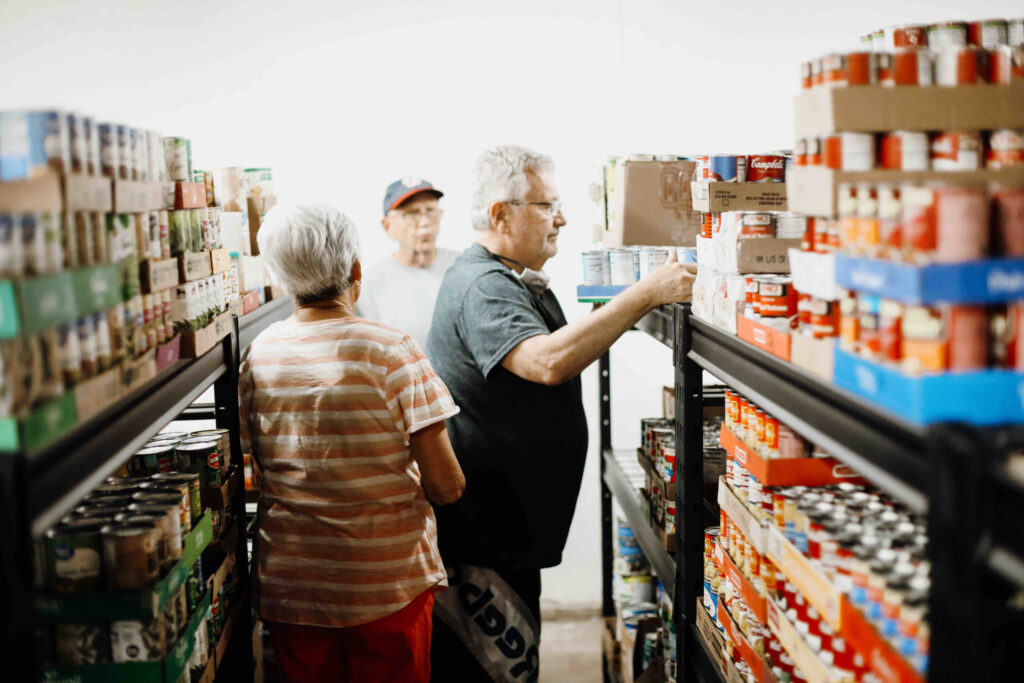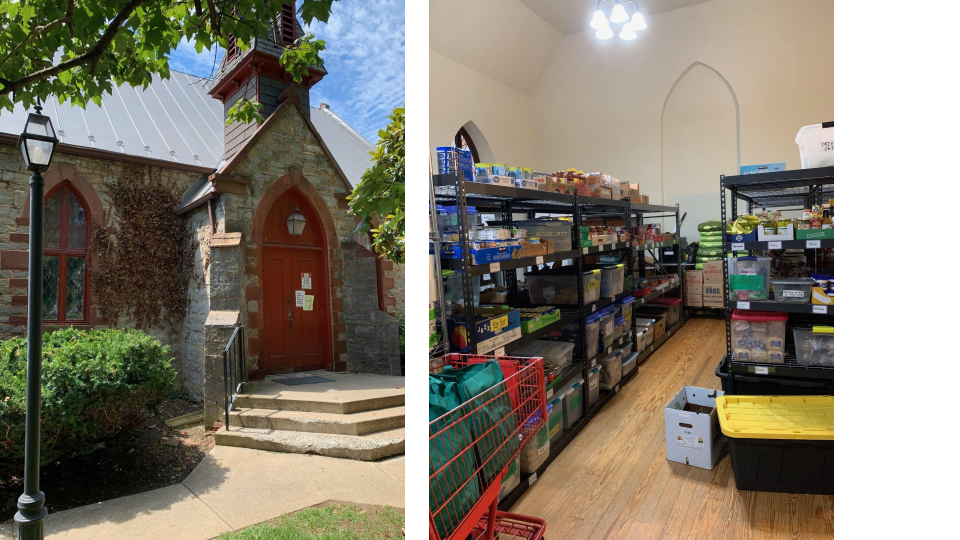Note: This article was originally published in the Spirit of Jefferson on September 21, 2022.
To more effectively address homelessness, social services providers in Jefferson County are focusing on providing people in need with permanent housing. The problem, though, is that available, affordable housing is scarce in the county. This means essentially that finding suitable housing for homeless people can take the effort of many different people, ranging from volunteers to licensed social workers, because not having a place to live typically brings along with it many other problems.
For instance, if you as a homeless person or family have to wait for permanent housing, you are going to also find hardship and worry in other aspects of your life. Where do you sleep tonight and the next night? How do you get a job without a home address? How do you get your meals? How do you get your kids schooled? What happens if you get sick or have an accident? If you’re substance addicted, how do you deal with your cravings?
Jefferson County Community Ministries (JCCM), under executive director Keith Lowry, employs a staff of full and part-time people and utilizes numerous volunteers to connect “client” needs to appropriate services. They collectively take on responsibility for navigating their clients step by step through the complicated process of reestablishing themselves within the community.
JCCM is a Christian faith-based nonprofit organization, whose most recent available IRS financial filings (2020) show revenues of approximately $600,000. More than half of its funds come from individual and corporate donations, a quarter from grants and another quarter from the county and city funds. It is the largest private sector social service provider in the county.
Besides its resident staff and volunteers, JCCM has access to medical and mental health specialists from the WVU Medicine hospital network, trained literacy volunteers, and pastoral care from clergy at churches affiliated with the ministry.
Also in the works at JCCM is a new, much larger facility planned in Ranson, which when built will be able to offer permanent sheltering for families and on-site emergency cold weather housing during the winter.
For any individual facing a persistent or unexpected bout of poverty, what JCCM’s care network assures them of is a place where they can reliably expect help without judgment or recrimination, Lowry said. But he emphasized that any person or family JCCM assists has to voluntarily want to receive the organization’s support. And its support is not coerced.

Kasey Purdue, the case management coordinator for JCCM, describes the organization’s role as “like a passenger in a car driven by the client. We’re just providing help navigating—the client is in control.”
Purdue’s role as a degreed and licensed social worker is to organize JCCM’s three other case managers to plan and implement a course of action to intervene and restore a sense of “autonomy, comfort and self-worth to each client.”
This is JCCM’s guiding principle and the desired outcome of a successful case management. This is not a one-size-fits-all approach, but a customized set of options around the issues that the JCCM determines for each individual client. Often, Purdue explained, her staff helps clients re-establish their legal identities, such as getting birth certificates, Social Security numbers and drivers licenses, necessary bridges to accessing other services and employment.
And what are those issues that JCCM determines are needed? They’re the common sense issues stemming from obvious homelessness or the threat of homelessness that first brings a potential client to the organization: substance abuse, unemployment, unmanageable financial burden, hunger, sudden health problems, disability issues and lack of transportation.
People and families in jeopardy of becoming homeless often have to choose to skip meals or put off buying clothes for themselves or their children to pay their rent or to fill their car’s gas tank, according to Lowry. To address these basic subsistence needs, JCCM operates a food pantry and emergency clothing closet. It also coordinates services for substance dependency (with Jefferson Day Report Center), for literacy instruction (with Jefferson County Adult Learning Center) and for health care (with West Virginia University Medical Center).
During the two years 2020 and 2021 when the COVID-19 pandemic was becoming entrenched, the need for food largely took precedence over housing because schools and businesses were closed, so families that were relying on school lunches found themselves with stressed out food budgets. Many of the supplemental organizations, especially churches, closely or loosely affiliated with hub organizations, stepped up to collect and distribute food to those newly and unexpectedly in need, Jan Hafer, president of Shepherdstown Shares, described early efforts to provide packaged food deliveries to families with at-home students, coordinating with the Mountaineer Food Bank program operating out of Covenant church’s Food Pantry in Shepherdstown.
As food need persisted during the pandemic, volunteers providing food organized an effort under the name Shepherdstown Shares to provide food on a more regular basis than the one day a month that the Covenant Pantry was open.
Hafer explained that the group intended the effort to last no longer than the pandemic, but the reality of persistent poverty in the area gave the project longer legs. The group is registered as a nonprofit organization committed to an indefinite lifespan, and Hafer expects that the need for it will continue indefinitely.
Shepherdstown Shares is still entirely managed and staffed by volunteers and its core mission has evolved into a fully stocked food pantry supplying food to a regular and growing client base who have connections through home or work to the greater Shepherdstown area. It acquires food from direct donation especially from local farms and markets, but also from bulk purchases it makes with donated funds and grants.
The Shares Pantry operates three days a week to provide meat, dairy, fresh fruit and vegetables, canned foods, paper products and personal hygiene products, with much of the equipment and refrigeration donated by local business groups, including the Bavarian Inn and the Clarion Hotel.
At present, the pantry serves 90 to 100 clients per week. Most are seniors and disabled individuals, though only a few are homeless.

The pantry is housed in a repurposed chapel at Trinity Episcopal Church in Shepherdstown. The church provides the facility rent free and in addition has funded an arrangement with the Tabler Farm to provide the pantry with fresh, organic produce.
Tabler Farm, outside Shepherdstown, is operated by faculty of the Environmental Studies Department at Shepherd University and is managed by Madison Hale, a Shepherd graduate with a degree in sustainable agriculture.
Hale said that the farm produces enough food in addition to the Shares Pantry, to also supply a limited food pantry for Shepherd students in one of the university dorms, as well as to occasionally supplement the food service at the Veterans Administration hospital in Martinsburg. Nothing goes to waste.
Cari Simon, Shares‘s vice president and manager of the pantry, highlighted the group’s “birthing” success as due significantly to the “midwifing” efforts of JCCM, which has been successfully operating its own food pantry for decades. It was in JCCM’s interest to lend its expertise because it extended the web of care to the northern part of the county, where folks in need might have difficulty getting to Charles Town.
And the wheel keeps spinning. Just as JCCM has extended itself in helping develop Shepherdstown Shares, Shares is paying forward its own gratitude by arranging for food shipments from the pantry to other underserved communities in Shannondale and Fox Glen. And there’s more coming.
Hafer described other initiatives in play or still in planning to broaden the network of services the organization provides. These include a fledgling case management system to address substance abuse issues through life and recovery coaching and training sessions to administer Narcan, the opioid overdose revival drug. The organization also provides clothing vouchers for first-time clients to use at the Trinity Thrift Shop adjoining the pantry and lends support to the Blessings Closet run by Rhonda Gales to support the education of kids in need.
Jefferson County’s a relatively wealthy county in West Virginia does not shield us entirely from the forces that create poverty and need. But what it does do, with the right combination of willingness, compassion and money is to put together and maintain a system of solutions.
Similar Posts:
- None Found